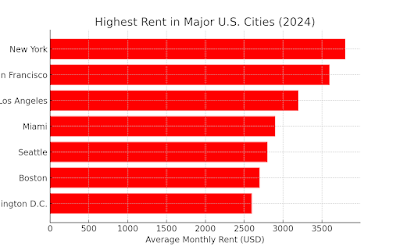How Private Equity is Making the U.S. Housing Crisis Worse
 |
| Private equity firms buying single-family homes in the U.S. |
How Private Equity is Fueling the Housing Crisis in the U.S.
The U.S. housing market has undergone a dramatic transformation over the past two decades, with private equity firms and institutional investors playing an increasingly dominant role. Once a market dominated by individual homebuyers and small landlords, single-family homes are now being snatched up by massive corporations, leading to skyrocketing rents, higher eviction rates, and an affordability crisis that is pushing homeownership further out of reach for millions of Americans.
Private Equity's Role in the Housing Crisis
Historically, single-family homes were owned by individuals or small-scale landlords. However, as geographer Taylor Shelton of Georgia State University noted, prior to the 2008 housing crash, large corporations had little involvement in the single-family home market. The financial crisis changed everything, allowing Wall Street firms to buy up foreclosed properties in bulk, turning them into highly profitable rental investments.
Today, private equity firms and institutional investors have become some of the largest owners of single-family homes in the U.S.. One such example is Amherst Private Equity, which owns 1,583 homes in Charlotte, NC, making it one of the largest landowners in the region.
Wall Street’s Growing Influence in Real Estate
Wall Street's deepening grip on the housing market has raised concerns about affordability and accessibility.
A CNN headline from August 2, 2021, summed it up best: "As Wall Street buys family homes, the rent check is too juicy to ignore."
Mother Jones (Nov. 29, 2013) warned about the risks of treating housing as a "dangerous get-rich-quick scheme."
The New York Times (March 4, 2020) reported on a $60 billion home-buying spree by Wall Street investors.
By 2022, one out of every four homes in the U.S. was purchased by large corporations, a staggering statistic that underscores the growing dominance of institutional investors in residential real estate.
The Biggest Players: Who Owns America's Homes?
Among the biggest corporate landlords are:
Invitation Homes – A publicly traded real estate investment trust (REIT) that owns tens of thousands of single-family rental properties.
Progress Residential – A private equity-backed firm owned by Pretium Partners, based in New York.
These firms operate with a clear strategy: buy up homes in bulk, raise rents and fees, and maximize returns for investors. Since 2020, rental prices have surged by 30% or more in many cities, making homeownership even more unattainable for average Americans.
The Impact: Rising Rents, More Evictions
While private equity firms and institutional investors reap enormous profits, everyday Americans are left struggling to afford housing. One of the most severe consequences of corporate homeownership is the spike in eviction rates:
Eviction filings in major cities have increased by over 35% since 2020.
In Atlanta, Wall Street now owns more than a quarter of all single-family homes, driving up costs and displacing renters.
The business model of these corporate landowners relies on aggressive rent hikes and swift evictions to ensure maximum profitability, leaving many tenants with little recourse.
How Private Equity Firms are Reshaping the Housing Market
The rising influence of private equity in the housing market has created a system where homes are seen less as places to live and more as speculative assets. Key trends include:
Bulk home purchases by large firms, reducing the supply available to everyday buyers.
Rapid rent increases, often outpacing wage growth.
Higher fees for maintenance, late payments, and lease renewals, adding financial strain on tenants.
Eviction spikes, displacing families and contributing to housing instability.
The Future of U.S. Housing: Can Anything Be Done?
The growing corporate ownership of single-family homes raises critical questions about the future of housing in the U.S. Some potential solutions include:
Stronger regulations to limit corporate homeownership in residential markets.
Tenant protections to curb excessive rent hikes and prevent unjust evictions.
Affordable housing policies to ensure more homes remain accessible to everyday buyers, not just Wall Street investors.
As long as private equity firms and hedge funds continue to dominate real estate, homeownership will remain out of reach for many Americans, and rents will continue to rise. Addressing this crisis requires urgent policy interventions to rebalance the housing market and prioritize people over profits.
Final Thoughts
The housing crisis in the U.S. is not just about supply and demand—it’s about who controls the supply. With private equity firms buying up more homes than ever, housing is shifting from a basic necessity to a financial commodity. If this trend continues unchecked, affordable homeownership will become a thing of the past for millions of Americans.
Do you think Wall Street should be allowed to dominate the housing market? Let us know in the comments below!




.jpg)
Comments
Post a Comment